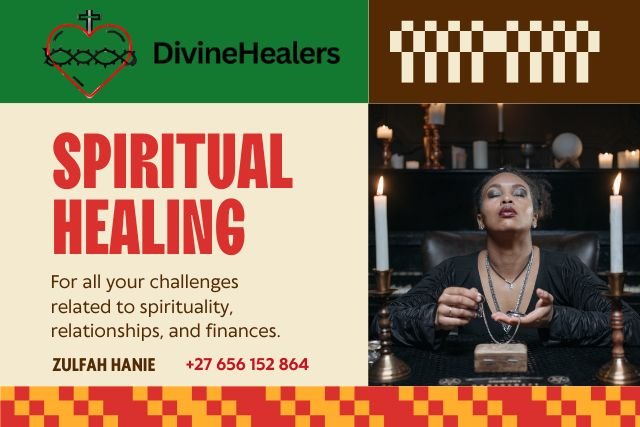Why This Question Is Sacred
If you’re Googling “when to know you are the problem in a relationship,” your spirit is already leaning toward truth. I’m Psychic Sarah from Psychic Healer (psychichealer.co.za), and I want you to know: asking this question is not self-blame—it’s spiritual courage. It means you’re willing to practice relationship self-awareness, take personal responsibility in relationships, and choose growth over ego.
In my sessions, I see a powerful pattern: the moment we stop defending our image and start listening to the impact of our actions, love begins to heal. This post will help you recognize signs you might be contributing to the problem, discern when it isn’t you, and take grounded, loving steps to repair and evolve.
Clear Signs You Might Be Contributing to the Problem
No one is the “problem” all the time. Yet patterns matter. If several of these resonate, it’s time for honest self-reflection in romantic relationships:
- You minimize your partner’s feelings. You say “you’re overreacting” instead of asking, “help me understand.”
- Defensiveness is your default. You rebut before you receive. You explain before you empathize.
- Blame-shifting. Discussions turn into pointing out what they did wrong rather than owning your part.
- Stonewalling or silent treatment. You withdraw to punish or control, not to calm down and return.
- Scorekeeping. You keep a ledger of mistakes to win arguments instead of solving patterns.
- Inconsistent boundaries. You say one thing, do another, then resent the fallout.
- Controlling or snooping. You demand passwords, track locations, or “test” loyalty.
- Criticism over curiosity. You attack character (“you’re lazy”) instead of behavior (“we need a plan for chores”).
- Withholding affection or attention as leverage. Love becomes a bargaining chip.
- Unresolved past hurt runs the show. Old wounds from exes or family erupt in current conflicts.
- Chronic unreliability. You’re frequently late, forget agreements, or avoid commitments and then apologize without change.
- Escalation habits. Yelling, interrupting, sarcasm, or name-calling become normal.
Seeing yourself in these signs doesn’t mean you’re “bad.” It means you have patterns asking for healing—and healing is possible.
A Compassionate Self-Assessment (10 Questions)
Use these prompts for self-assessment for relationship problems. Journal with honesty and tenderness—no shaming, just clarity:
- When conflict arises, do I listen to understand or to respond?
- What three feelings do I avoid most (e.g., guilt, fear, shame), and how do I act when they appear?
- Where have I broken trust (small or big)? What repair steps have I actually taken?
- Do I try to control outcomes rather than share power and respect boundaries?
- How often do I say “you” versus “I” in conflict? What am I protecting when I blame?
- What beliefs about love did I inherit that might be unhealthy (e.g., “jealousy proves love”)?
- What is one behavior I repeat that my partner has clearly asked me to change?
- When I apologize, do I also alter my behavior within two weeks?
- Am I caring for my body, sleep, and finances? (Neglect in these areas often spills into partnership.)
- What would the most loving version of me do differently this month?
What Healthy Love Looks and Feels Like
Healthy relationships share recognizable qualities: mutual respect, trust, honesty, support, fairness, and equality. If your dynamic repeatedly lacks these, there’s a pattern to address. For grounding in evidence-based guidance, explore:
- The National Domestic Violence Hotline: Healthy Relationships — clear markers of communication, respect, trust, and boundaries.
- Rutgers University: Healthy Relationships — mutuality and equality in practice.
- University of Wyoming: Healthy vs. Unhealthy Relationships — warning signs and healthy baselines.
- USC Aiken Counseling: Relationship Check-Up — questions to assess your bond.
For an accessible overview of common patterns like blaming and manipulation, see Simply Psychology on “Am I the Problem?”
Pause Here for Gentle Guidance
Sometimes you don’t need more information—you need reflection with a safe, intuitive guide. If you’re wrestling with how to recognize if you’re the problem in your relationship, a focused reading can illuminate your patterns and your path to repair.
Explore a compassionate, private reading with me at Psychic Healer. Click below when you’re ready to see with clarity and act with love.
Repair in Practice: A 5-Step Framework
Understanding your role in relationship problems is only the first step. Here’s a practical way to transform insight into action.
1) Regulate First
Body before words. Breathe slowly out, drink water, splash your face, walk. Speak only when calm enough to stay kind. Your nervous system is part of your relationship.
2) Own One Clear Behavior
Say, “I notice I interrupted you three times. That’s on me. I’m sorry.” Specific ownership builds trust. Avoid “if you hadn’t…”
3) Offer a Do-Over or Repair
Ask, “Can we try that conversation again?” or “How can I make amends?” Repair is a behavior, not a paragraph.
4) Align With Agreements
Choose one agreement you will keep for 14 days (e.g., “no phones at dinner” or “I’ll text if I’m running late”). Consistency out-heals promises.
5) Track and Share Progress
Once a week, check in: “What felt better? Where did I slip? What will I try next?” This is personal accountability in romantic relationships in action.
Spiritual Roots: Why We Repeat Painful Patterns
Many of us aren’t “the problem”—we’re repeating the problem. Unprocessed grief, childhood modeling, cultural scripts, or ancestral vows can echo through our choices. In energy work, I often see:
- Inherited scarcity or fear of abandonment driving jealousy or control.
- Unhealed betrayal wounds creating hypervigilance or preemptive withdrawal.
- Family loyalty binds that make you self-silence to keep peace.
Healing here requires gentle witnessing and ritual. That’s where spiritual reading, cleansing, and relationship healing work together with practical skills.
Ritual Support for Relationship Healing
If your heart is asking for deeper energetic clearing—removing cords of resentment, strengthening trust, and resetting the field of your partnership—ritual support can help. I offer relationship-focused guidance, and for ceremonial work I also collaborate with trusted healers.
Explore our extended circle for guided rituals and ancestral alignment:
Use this support alongside communication skills—not instead of them. Spirit amplifies what you practice.
Important Discernment: When It’s Not You
Self-reflection never requires self-erasure. If your partner uses threats, intimidation, isolation, monitoring, humiliation, or financial control, that is not “feedback”—it’s unhealthy and can be abusive. It is not your job to fix someone else’s harmful behavior.
- Review healthy relationship markers at The Hotline.
- Trust your body. If you feel chronically unsafe or smaller, seek support from a trusted friend, counselor, or local helpline.
If you are in immediate danger, contact your local emergency services. You deserve safety and respect.
A Gentle 7-Day Reset to Change Your Part
This brief practice builds self-awareness and steady change without overwhelm.
- Day 1: Name one pattern you own (e.g., defensiveness). Tell your partner you’re working on it.
- Day 2: Regulate before responding. Three slow exhalations before speaking.
- Day 3: Reflective listening for one conversation: “What I’m hearing is…”
- Day 4: Repair one small miss today (late text, forgotten dish) without excuses.
- Day 5: Appreciation practice: name three specific things you value about your partner.
- Day 6: Align with one boundary you set (bedtime, screen time, spending).
- Day 7: Review wins and slips together. Choose one next-step agreement.
Money, Stress, and Conflict
Financial pressure can inflame communication and closeness. If money fear fuels short tempers or avoidance, add a simple weekly check-in around spending, saving, and shared goals. If you feel spiritually blocked around abundance, I offer money-clearing work that many clients pair with practical budgeting. When anxiety lowers, kindness rises.
How to Talk About It Without Triggering Another Fight
Try this three-part script the next time tension rises:
- Impact: “When I interrupt, I see your shoulders tense and you go quiet.”
- Ownership: “That’s on me. I’m sorry for making it hard to share.”
- Offer: “I’ll pause and reflect back what I heard before I respond. Can we try now?”
Then keep it short. Repair thrives on follow-through more than speeches.
If You Slip: What Real Accountability Looks Like
- Say it early. “I caught myself getting defensive just now.”
- State the change. “I’m going to take a breath and listen fully.”
- Make a micro-amend. “I’ll do the dishes tonight to give you a rest while I reflect.”
- Repeat the new behavior tomorrow. Consistency proves care.
You Don’t Have to Do This Alone
If you’re still wondering how to know if you’re the problem in your relationship, guidance accelerates growth. At Psychic Healer, I blend intuitive insight with grounded tools so you can see your pattern clearly, take kind responsibility, and co-create the relationship you actually want.
When you’re ready, book a session at psychichealer.co.za. Strength meets softness here.


